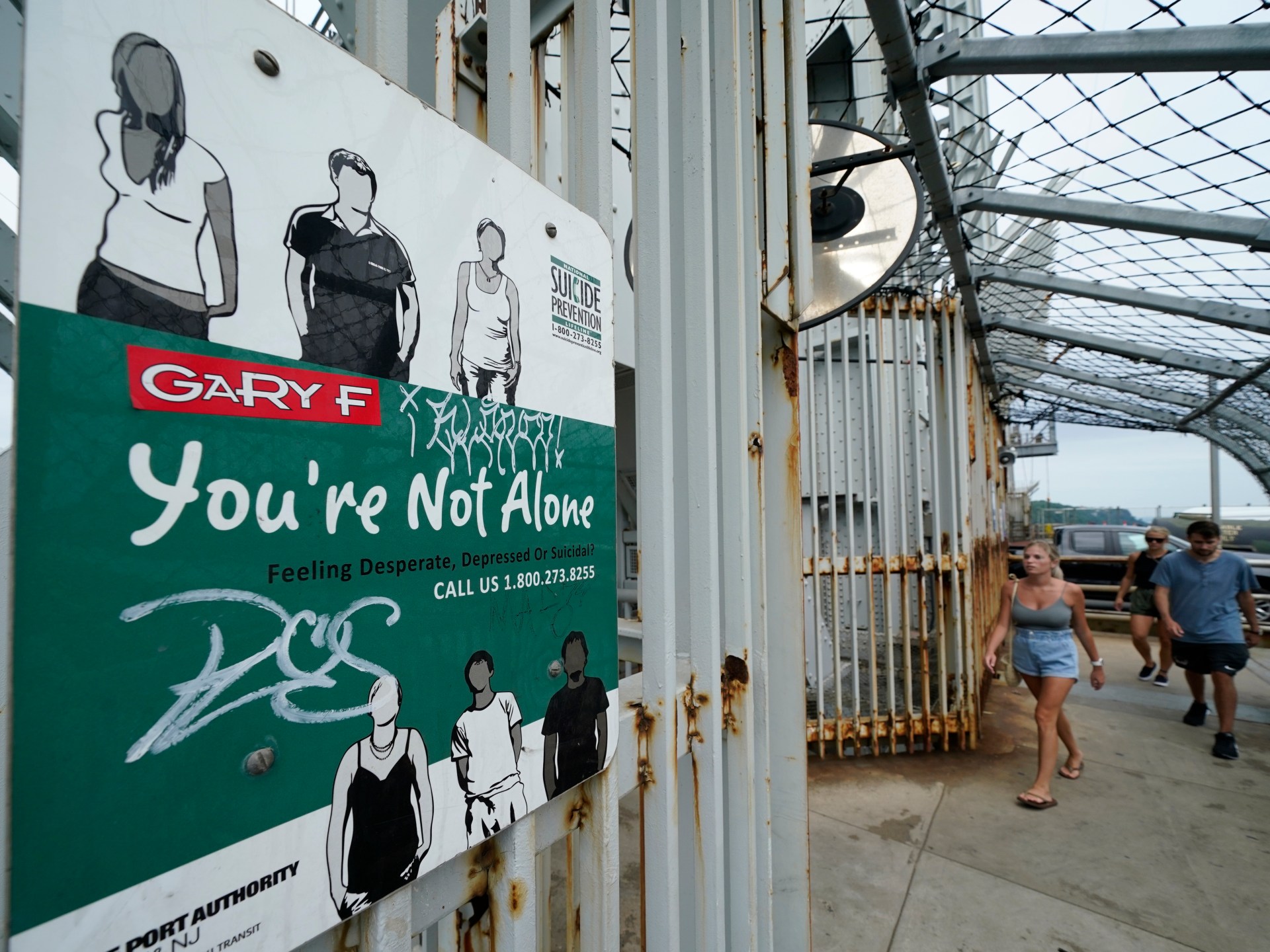More than 700,000 people across the world die by suicide every year. That’s almost 2,000 people every single day. Anyone who has reached the point of wanting to end their life needs support and compassion.
Yet, in 23 countries, attempting suicide is considered a criminal offence punishable with anything from a fine to years of imprisonment.
The World Health Organization (WHO) and the International Association for Suicide Prevention mark September 10 as World Suicide Prevention Day, to help end the stigma surrounding suicide. It is a day designed to send a message to the world that suicide can be prevented.
In 2023, the day brings hope: Finally, that message is being heard.
The organisation United for Global Mental Health has developed a network of advocates through the Global Mental Health Action Network. They have joined forces to press countries that still classify suicide as a criminal offence to change their laws.
In the past year, Guyana, Pakistan, Ghana and Malaysia have made landmark reforms to decriminalise suicide. These ground-breaking legislative changes not only act as the first step towards ending the stigma of suicide and suicidal ideas, they also mean there is a better chance of people coming forward to ask for support before it’s too late.
A lot of the countries where attempting suicide is still illegal in civil law are former British colonies, with laws based on outdated British penal legislation. Breaking with that past is a bold step forward for countries where attempting suicide has been illegal for the best part of a century or longer.
People suffering to the extent that they are willing to take their lives have as much right as anyone else to seek support and treatment. The fear of punishment and potential reprisals against loved ones not only stops people from seeking help but also stops truthful reporting on suicide. This means governments lack data on the scale of the problem, making it difficult to plan effective national prevention efforts.
It was with this argument that Guyana, a country with one of the highest suicide rates in the world, agreed to decriminalise suicide. The Suicide Prevention Bill, 2022 not only repealed the law that made suicide a criminal offence but replaced it with a national suicide prevention plan.
Today, Guyana is in the process of establishing suicide prevention centres throughout the country and rolling out public programmes to reduce suicide attempts. Guyana’s action has sparked hope in other Small Island Developing States (SIDS) where suicide is still a crime, such as St Lucia, the Bahamas and Suriname.
Earlier this year, the SIDS signed the Bridgetown Declaration, which included an agreement to “update health legislation in line with human rights norms including the decriminalisation of suicide”.
Ghana successfully decriminalised suicide in March 2023, raising hopes other African countries will do the same. Constitutional petitions in Kenya and Uganda challenging legal provisions that criminalise suicide have been launched, and the civil society groups organising these petitions are in close contact with their counterparts through the Global Mental Health Action Network.
Meanwhile, in December 2022, Senator Shahadat Awan from Pakistan, a country which punished attempted suicides by up to a year’s imprisonment, successfully championed the abolition of Section 325 of the Pakistan Penal Code. The decriminalisation of suicide in Pakistan has opened the door for other countries in Asia to follow suit. Malaysia decriminalised suicide in June 2023 and Pakistan’s neighbours are also taking steps towards decriminalisation.
At the Mental Health For All Webinar in August, Dr Shahid ul Islam from the Directorate General of Health Services in Bangladesh said: “We have to own the problem, it has to be addressed and we need to be committed to decriminalise suicide.” This level of change was unthinkable even five years ago in South Asia.
It has come through the tireless efforts of civil society and grassroots organisations like BRAC in Bangladesh and Taskeen in Pakistan. They have fought not only to abolish laws criminalising suicide but also to call for governments to increase the level of support for people experiencing mental ill-health.
With 77 percent of suicides occurring in low- and middle-income countries, the Global South is coming together to work out how to abolish these age-old and outdated laws. But challenges remain. Policymakers in several countries still view the criminalisation of suicide as a deterrent, despite little evidence to support this idea.
At United for Global Mental Health, we have been working with partners across the globe to campaign and advocate for the decriminalisation of suicide. We know that when people feel like they can ask for support without punishment or discrimination, they are much more likely to seek the treatment they need.
The WHO is demonstrating its support for the decriminalisation of suicide with the launch of a new policy brief on the issue. It recommends that member states dissolve every piece of legislation that criminalises suicide, attempted suicide or suicidal ideation.
From South America to South Asia, and from Africa to Southeast Asia, positive examples hold the potential to inspire others. Suicide is not a crime but a human rights and public health concern. It is now time for the punishment of ill mental health to end and for the world to provide support to those forced to suffer in silence.
If you or someone you know is at risk of suicide, these organisations may be able to help
The views expressed in this article are the author’s own and do not necessarily reflect Al Jazeera’s editorial stance.
